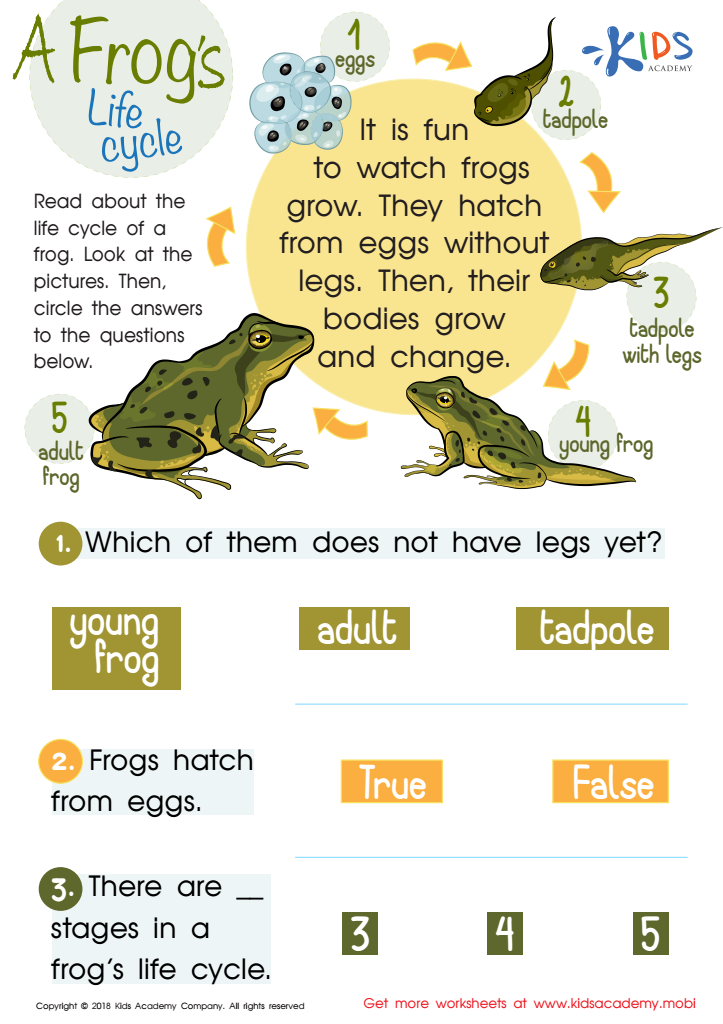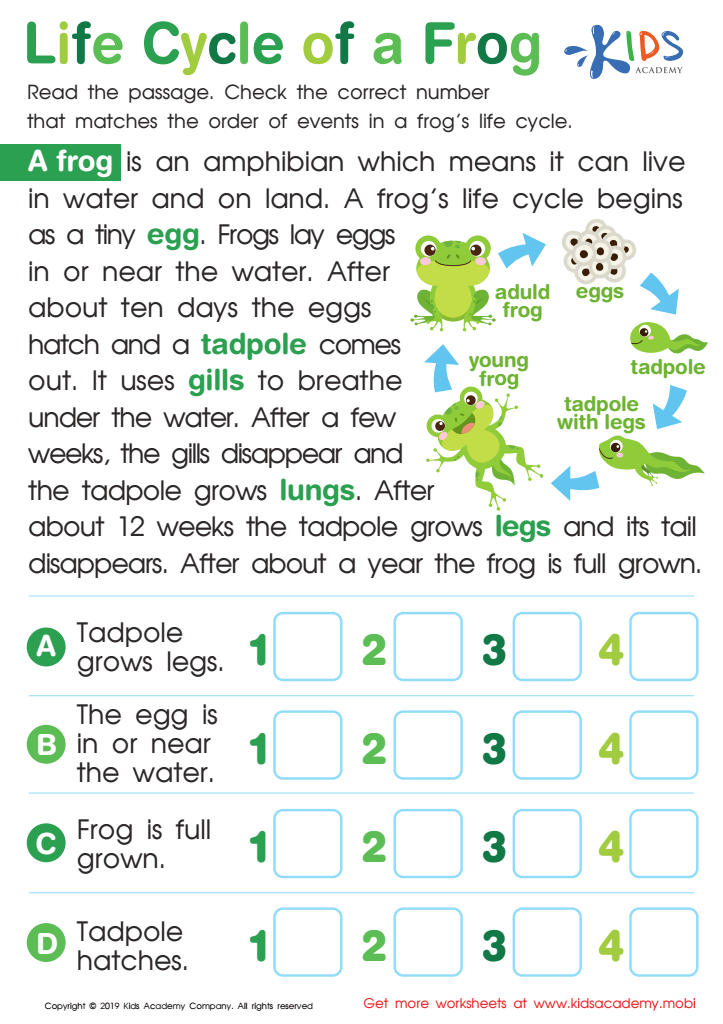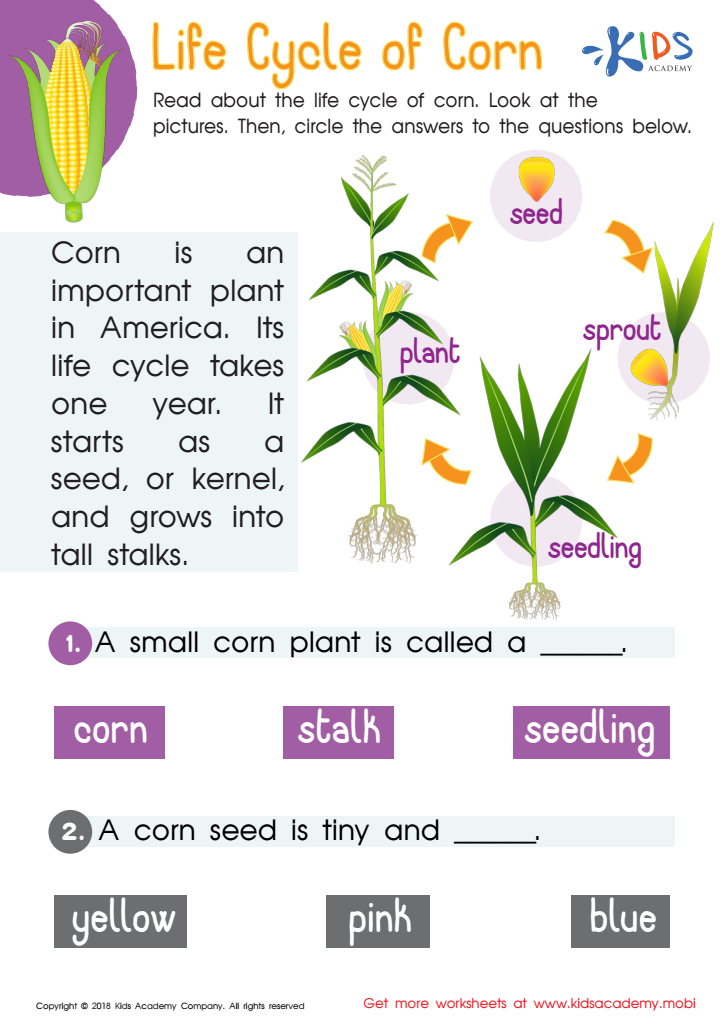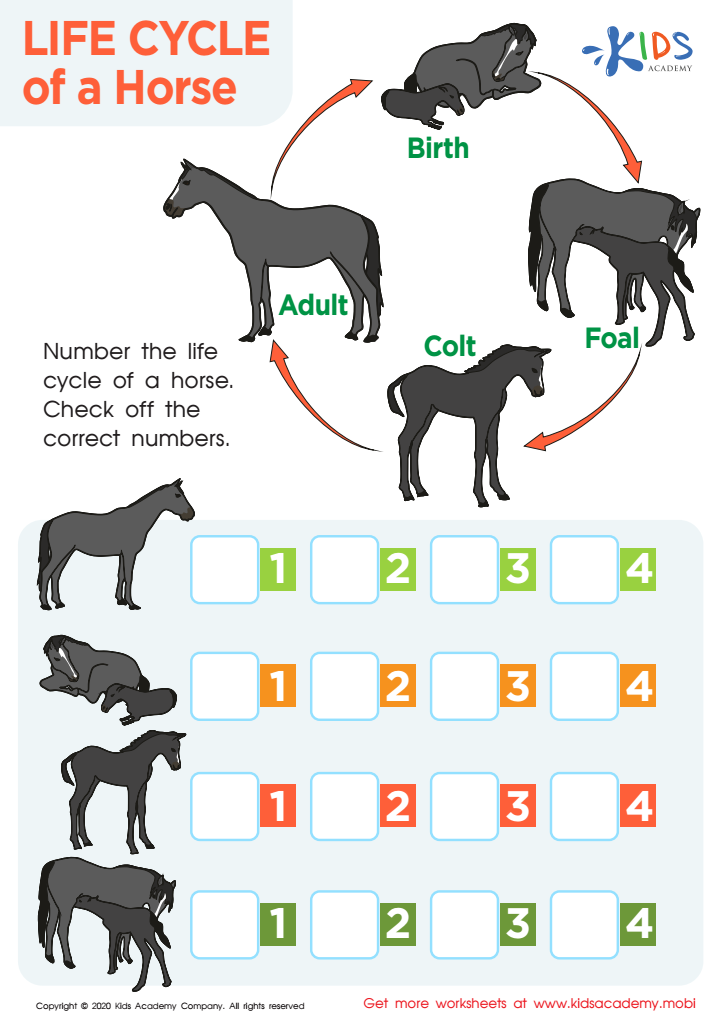Understanding life cycles Easy Worksheets for Ages 6-7
4 filtered results
-
From - To
Introducing "Understanding Life Cycles Easy Worksheets for Ages 6-7" – the perfect resource for young learners! These engaging and age-appropriate worksheets help children explore and understand different life cycles in nature. With beautiful illustrations and simple activities, kids will discover how plants, animals, and insects grow and develop. Designed to enhance curiosity and cognitive skills, these worksheets make learning science fun and interactive. Parents and teachers will find this collection a valuable tool to support their educational goals, aligning with early childhood learning standards. Jumpstart your child's scientific journey today with these delightful life cycle worksheets!


A Frog’s Life Cycle Worksheet


Life Cycle of a Frog Worksheet


Life Cycle of Corn Worksheet


Life Cycle of a Horse Worksheet
Understanding life cycles is essential for young children, and parents and teachers play a crucial role in facilitating this learning. Life cycles explain the process of growth and development that all living organisms undergo. By introducing this concept to 6-7-year-olds, parents and teachers can nurture their curiosity and sharpen their observational skills in a hands-on, engaging way. Knowing about life cycles connects children to the natural world around them, fostering a sense of wonder and respect for living things.
This fundamental concept also forms the basis for more advanced topics in biology and environmental science that students will encounter later in their education. By grasping these basics early, children are better prepared for academic success as they progress through school.
Moreover, studying life cycles supports the development of critical thinking and promotes a deeper understanding of sustainability and ecology. Kids learn about interdependency within ecosystems, which can foster responsible attitudes towards nature and the environment.
Additionally, interactive activities around life cycles can enhance literacy, math, and social skills. Vocabulary related to different stages, counting life cycles, or working in groups for class projects makes learning multi-faceted and more effective. In essence, understanding life cycles early lays a strong educational foundation, enriches intellectual development, and encourages environmental stewardship.
 Assign to My Students
Assign to My Students



.jpg)














